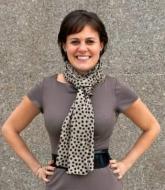“The majority of people that we found mutations in wouldn’t have even qualified for genetic testing, because they have no family history,” she said.
Ms. Visco points out, however, that the recommendations are based on data from a very small, well-defined population, 2.5% of whom carry one of the three high-risk mutations. Of this subset of the Ashkenazi population, some but not all women will develop breast or ovarian cancers and some but not all will die from the disease.
“It’s much too little data on which to base a recommendation to all women around the globe over 30,” she said.
‘A public health nightmare’
Dr. Burstein acknowledges that the recommendation for widespread screening may be premature.
“The dilemma in testing everybody is that the chance of any given woman having a mutation is very low. In the U.S., it’s not 10%, it’s more like less than 1%,” he said. “With BRCA testing, it invites the possibility that when you start testing lots and lots of people, you end up getting false-positive results. That’s probably less of a worry with the well-known half-dozen mutations that specifically affect Ashkenazi families.”
He notes that genetic testing companies have cataloged myriad variations in the genes, the vast majority of which are of unknown significance.
In a random, large population sample, “because of the cruel math of probabilities, the number of people who had mutations of unknown significance would dwarf the number of people identified with hereditary mutations. That would create a public health nightmare, because we would not be able to tell millions of people what their true risk of breast cancer or ovarian cancer developing was, and therefore it would be very hard to advise them on exactly what surveillance or what kind of prophylactic surgery they should get,” he said.
For their part, Dr. King and Dr. Levy-Lahad acknowledge that “population-wide-screening will require significant efforts to educate the public and to develop new counseling strategies, but this investment will both save women’s lives and provide a model for other public health programs in genomic medicine. Women do not benefit by practices that ‘protect’ them from information regarding their own health. They should have the choice to learn if they carry an actionable mutation in BRCA1 or BRCA2.”
Dr. King declared no conflicts of interest relevant to the research.
